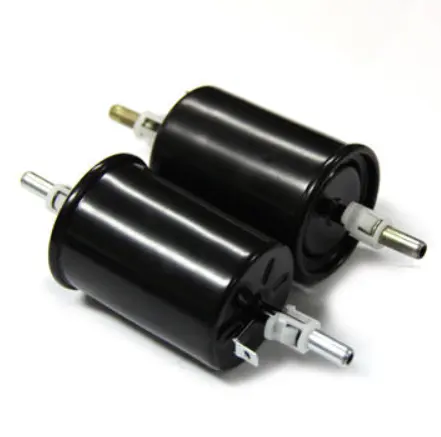Sep . 22, 2024 14:41 Back to list
aircraft oil filter
Understanding Aircraft Oil Filters A Vital Component in Aviation Maintenance
In the aviation industry, ensuring the operational efficiency and safety of an aircraft is paramount. One of the critical components in this maintenance process is the aircraft oil filter. The oil filter plays a vital role in preserving the engine's health, improving its performance, and extending its lifespan.
What is an Aircraft Oil Filter?
An aircraft oil filter is specifically designed to clean the engine oil by removing contaminants such as dirt, metal particles, and carbon deposits. Engine oil lubricates essential components within the engine, reducing friction and preventing overheating. However, with time and use, this essential oil accumulates impurities that can negatively affect engine performance. This is where the oil filter comes into play. It provides a crucial barrier, ensuring that only clean oil circulates through the engine components.
Types of Oil Filters in Aviation
There are primarily two types of oil filters used in aircraft full-flow filters and bypass filters.
1. Full-Flow Filters These filters allow all the engine oil to pass through the filter before returning to the engine. They are the most common type used in modern aircraft due to their ability to filter out a more significant volume of contaminants. Full-flow filters can have different designs, including pleated paper, stainless steel, or even magnetized filters that capture metallic particles.
aircraft oil filter

2. Bypass Filters Different from full-flow filters, bypass filters allow a portion of the oil to bypass the filter. This is typically done in situations where the filter is clogged or the oil is too viscous to go through the filter. While bypass filtering is less effective in removing contaminants, it is often found in systems where oil flow may need to be prioritized over its cleanliness under certain conditions.
Importance of Regular Maintenance
The performance of oil filters directly impacts the health of an aircraft’s engine. Regular maintenance and timely replacement of oil filters are crucial practices in aviation. While most filters are designed to last a specific time frame or operating hours, factors such as flying conditions, engine design, and even operational habits can affect filter longevity. Regular oil filter inspection and maintenance can prevent engine wear and potential failures, contributing to flight safety.
Choosing the Right Oil Filter
Selecting the appropriate oil filter for an aircraft is critical. Not all filters are interchangeable; each type is designed for use with specific engine models and its unique operating conditions. Aircraft manufacturers provide recommendations on the best oil filters for their engines, considering factors like oil viscosity, flow rate, and the operating environment. Utilizing the manufacturer’s guidelines ensures optimal engine performance and reliability.
Conclusion
In summary, the aircraft oil filter is an integral element in aviation maintenance. It serves not only to keep engine oil clean but also to enhance engine performance and longevity. As designs evolve and aviation technology advances, understanding the importance of oil filters and the role they play in maintaining flight safety becomes increasingly essential. Regular checks and replacements of oil filters can mean the difference between smooth flying and potential mechanical failures, highlighting their importance in aircraft maintenance protocols.
-
High Quality China Brand Car Air Filter & Auto Filters Supplier
NewsJul.26,2025
-
High-Quality Fuel Filter for Cars – Durable, Efficient Spin On Fuel Oil Filter
NewsJul.25,2025
-
China Cabin Filter Supplier – Premium Auto Air & Oil Filters Exporter
NewsJul.24,2025
-
Premium Antiskid Tire for Safe Driving & High Performance Filters
NewsJul.23,2025
-
Premium Antiskid Tire for Safe Driving & OEM Air Filter Solutions
NewsJul.22,2025
-
Premium Spin-On & Aluminum Fuel Filters for Car Care
NewsJul.21,2025


